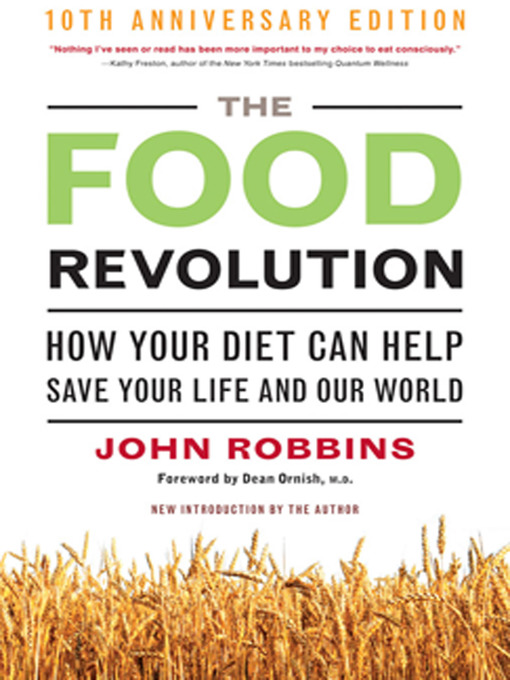In 1987, John Robbins published Diet for a New America, which was an early version of this book, and he started the food revolution. He continues to work tirelessly to promote conscious food choices more than 20 years later. First published in 2001, The Food Revolution is still one of the most frequently cited and talked about books of the food-politics revolution. It was one of the very first books to discuss the negative health effects of eating genetically modified foods and animal products of all kinds, to expose the dangers inherent in our factory farming system, and to advocate a complete plant-based diet. The bok garnered endorsements by everyone from Paul Hawken to Neal Donald Walsch, Marianne Williamson to Julia Butterfly Hill. After ten years in print, The Food Revolution is timelier than ever—and a very compelling read. The 10th anniversary edition has an updated, new contemporary look and a new introduction by the author.
- Available now
- New eBook additions
- New kids additions
- New teen additions
- Most popular
- Spanish Titles for Young Readers
- Try something different
- Explore All-Access Romance!
- Get Started With All-Access Comics!
- See all ebooks collections
- Available now
- New Audiobook Additions
- New kids additions
- New teen additions
- Most popular
- Try something different
- See all audiobooks collections


